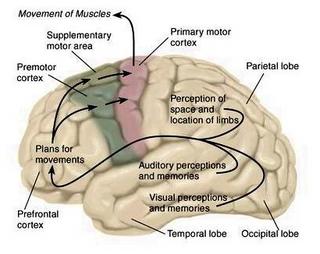It's common to see arguments resting on the idea that there exists some pure, "real" version of something (an ideology, religion, organization, institution, person, etc) which has been corrupted or perverted by some more recent manifestation of that thing. I've been thinking recently about two examples of this form of essentialist thinking: the idea that "real" Islam is peaceful and radical Islamists have "perverted" Islam, and the idea that the "real" America is a place of freedom, democracy, equality, etc. and the modern GOP betrays everything that America stands for even as it invokes America to justify its policies. These are arguments that I'm quite fond of (in
one post about extraordinary rendition, I echoed the poignant question, "What has happened to our country?" as if there were some Golden Age of America where torture did not happen), but they are certainly problematic.
After all, what can "real" Islam and "real" America possibly refer to? I trust no one seriously believes in Platonic Forms anymore, and certainly not for ideologies/movements/polities as amorphous and vehemently contested as "Islam" and "America." Empirically, no one can deny that aspects of Islam have been violent, or that America
hasn't always been on the side of the angels. Is the "real" thing to which the essentialist appeals a mere figment of the imagination?
In a word, yes, but the story doesn't end there. Essentialism has a powerful intuitive appeal - hence the enduring popularity of Rousseau's idea that we all have an "authentic" self that can be obscured by the personas we act out, which mutated into Freud's unconscious ("Oh, that's not what you
really think"). This power can be harnessed for rhetorical ends even though it is empirically unfounded and even conceptually incoherent.
Mark Kleiman had a
post a while back noting that emphasizing good aspects and de-emphasizing bad aspects of American history when teaching schoolchildren is a good way to get them to believe later on that doing bad things is "un-American." I think this is true - it's certainly how I was brought up and why I believe that torture is un-American even though
plenty of Americans have tortured prisoners in the past. The power of this rhetorical schema lies in the power of American national identity - if we liberals can reclaim (or claim) American patriotism onto our side, we harness all the emotional attachment of "America" for good rather than evil.
So it is, in a way, with "real" Islam. I wrote the following in a comment to
this post by Abiola Lapite:
The claim that genuine Islam is peaceful (or whatever) seems to me at least partly a rhetorical ploy aimed to reclaim (or claim) Islam away from the Islamists. There is a conflict within Islam between liberal and reactionary strains and it seems like a sensible move for each side to say they are the "real" Islam. For Western politicians to say that the liberal strains are the real Islam is to signal support for that side within the intra-religious conflict, as opposed to blanket opposition to all forms of Islam. As for those liberals who silently acquiesce in Islamism, the schema that Islamists have "betrayed" Islam can be a useful tool to spur them to opose Islamism more openly.
Rather than assault the faithful full-on with an attack on "Islam," one makes the rhetorical move that the liberal strains are more true to the "real" spirit of Islam, thus harnessing the emotional attachment to "Islam" for good rather than for evil.
In a way, I've suggested that though essentialism may not be analytically helpful (or correct, or even coherent), it can be a powerful tool rhetorically and politically. I suppose one could say this is a cynical or disingenous form of argument if used in full recognition of its analytical inadequacy. Maybe it is; maybe it should appear with an asterisk at the end ("*statement meant rhetorically, not factually"). But as political speech - a genre full of analytically empty but rhetorically powerful schemas - it seems par for the course. Thoughts, anyone?

